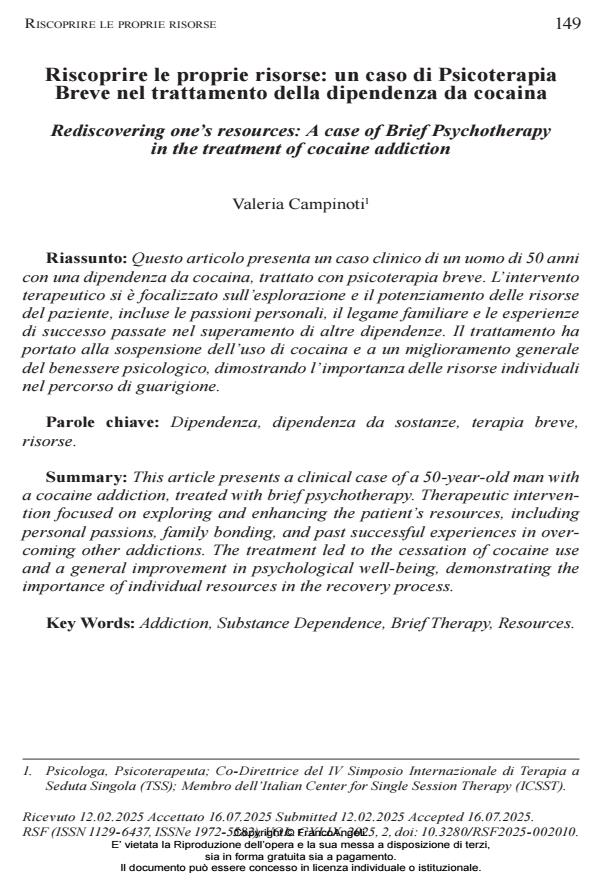Riscoprire le proprie risorse: un caso di Psicoterapia Breve nel trattamento della dipendenza da cocaina
Titolo Rivista RIVISTA SPERIMENTALE DI FRENIATRIA
Autori/Curatori Valeria Campinoti
Anno di pubblicazione 2025 Fascicolo 2025/2
Lingua Italiano Numero pagine 14 P. 149-162 Dimensione file 217 KB
DOI 10.3280/RSF2025-002010
Il DOI è il codice a barre della proprietà intellettuale: per saperne di più
clicca qui
Qui sotto puoi vedere in anteprima la prima pagina di questo articolo.
Se questo articolo ti interessa, lo puoi acquistare (e scaricare in formato pdf) seguendo le facili indicazioni per acquistare il download credit. Acquista Download Credits per scaricare questo Articolo in formato PDF

FrancoAngeli è membro della Publishers International Linking Association, Inc (PILA), associazione indipendente e non profit per facilitare (attraverso i servizi tecnologici implementati da CrossRef.org) l’accesso degli studiosi ai contenuti digitali nelle pubblicazioni professionali e scientifiche.
Questo articolo presenta un caso clinico di un uomo di 50 anni con una dipendenza da cocaina, trattato con psicoterapia breve. L’intervento terapeutico si è focalizzato sull’esplorazione e il potenziamento delle risorse del paziente, incluse le passioni personali, il legame familiare e le esperienze di successo passate nel superamento di altre dipendenze. Il trattamento ha portato alla sospensione dell’uso di cocaina e a un miglioramento generale del benessere psicologico, dimostrando l’importanza delle risorse individuali nel percorso di guarigione.
Parole chiave:Dipendenza, dipendenza da sostanze, terapia breve, risorse.
Valeria Campinoti, Riscoprire le proprie risorse: un caso di Psicoterapia Breve nel trattamento della dipendenza da cocaina in "RIVISTA SPERIMENTALE DI FRENIATRIA" 2/2025, pp 149-162, DOI: 10.3280/RSF2025-002010